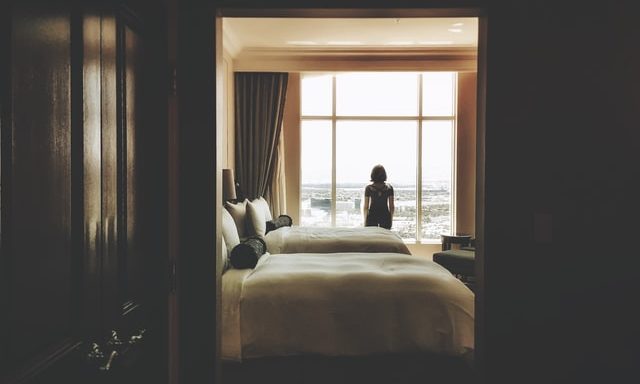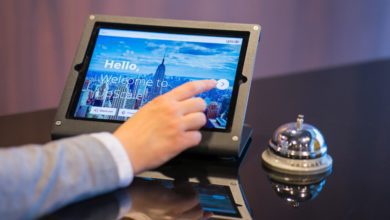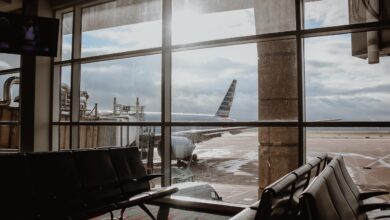Advice on ePOS trends for hoteliers in 2021
By Adrian Valeriano, senior vice president and MD EMEA at Lightspeed

There is no doubt that the pandemic is continuing to pose a considerable amount of strain on businesses globally, and not least the hotel and hospitality industry. Covid-19 has meant that businesses have had to drastically change, especially for those within such sectors; they have had to pivot to ensure that their offering remains at the forefront of their consumer’s minds. Somewhat of an impossible task with the imposed restrictions, but there is an air of reassurance as we strive into the vaccination regime.
In recent decades, technology has developed in ways that allow hotels to reliably deliver a personalised service through use of data. Cloud solutions like Lightspeed ePOS have been developed to give hotels more accuracy by providing insight into the needs of their customers and the performance of their employees. Such insights can be used to manage staff scheduling and labour costs, or to deliver personalised customer service more easily. More importantly, they help hotels adapt to change in a time when their ability to provide social distanced, contactless experiences to guests may decide whether your hotel can survive into the future.
As we head into 2021 with a second dose of precariousness, there are a few things which hoteliers should be looking into to ensure that their business has the best outcome for the year ahead.
A safer consumer experiences in 2021
Inevitably, hygiene and safety will be one of the most defining criteria for consumer buying decisions, accessibility to goods and brand identity development. For hotels, this consideration must be paramount and may spell the end of long-established services such as the hotel buffet, placing greater emphasis on efficient use of order and pay technology so customers can safely eat from their rooms.
The digitisation of dining, shopping and standard consumer experiences is revolutionising and enabling safer environments for all. Undeniably, as social scenarios begin again, the ability to provide contactless and fully safe experiences will be expected of businesses. Hoteliers should look at enacting contactless digitised payment systems and the likes of QR scanning to minimise contact to any degree possible.
Cloud-based solutions, insights and analytics will be key
Hoteliers and restaurateurs alike will continue to navigate the changes posed by Covid-19 and operate with a limited offering throughout much of 2021. The ongoing adoption of insights and analytics will therefore be key to continue to drive businesses to make smarter operational decisions, at a time when they are keeping a watchful eye over all finances and seeking efficiencies where they can.
The outdated legacy systems that so many hotels still use aren’t fit to prepare for an uncertain future. For a hotel to thrive, it’s imperative to look to more flexible and reliable omnichannel and cloud-based solutions, meaning that its data lives on the internet, providing security for the business.
Additional to cloud-based solutions as the norm, our belief is that emerging technology will drive innovation in both retail and hospitality. This will be the true game-changer that connects the supplier, merchant, and customer through automation. As companies obtain more data, they will be required to provide more insight and recommendations to streamline, improve business and profitability overall.
Lightspeed enables hoteliers to link each of their revenue centres through their ePOS system. That way, they can track everything from sales and staff performance all in one place. It also streamlines customer experience by linking directly to a wide range of PMS solutions – meaning guests can make an order at a hotel’s restaurant and bar, have it billed directly to their room and pay at the end of their stay.
Taking control of delivery and takeaway
Delivery and takeaway services have become integral to serving convenience to a changing customer, with those who already offered it adding resources to bolster their offering and those who didn’t, hurrying to add it, with many restaurants working with third-party players like Uber Eats and Deliveroo. However, these third-party platforms can charge high commissions to do so, therefore many are looking to take more ownership and control of the process by bringing it in house.
As well as using third party-platforms, online ordering for delivery can also mean adding an ordering system that communicates seamlessly with your restaurant point-of-sale setup. Boundary London, a Lightspeed client, took advantage of this during lockdown by offering their food products for delivery through Lightspeed’s integration with Deliverect; “this allowed us to put every single item that we were selling in our cafe and grocery store onto Deliveroo and we were immediately selling every product we had available as a delivery. It helped save our business.” (Aaron Resch, COO, Boundary London).
The hospitality industry can bounce back
We are optimistic that the 2021 hospitality landscape will be one of growth as we’re continuing to see the industry adapt and find new ways to survive.
A recent Lightspeed study shows that there is a strong desire among consumers to dine out with 34% of Brits surveyed revealing they would be happy to dine out again if they are guaranteed a table. This is the perfect opportunity for hoteliers to be ready for their customers to ramp up again and having the technology to support this will be integral.
Throughout 2020, many hospitality businesses worked to diversify their business and access new revenue streams to stay operational, whether this be through delivery technologies, new ways of consumer purchasing and the proliferation of contactless experiences, pushed through the usage of online channels. What we can see is a clear appetite for merchants to innovate with more insights, tools and automation as consumers have become accustomed to such ways of purchasing.
Ultimately, while the pandemic has posed multiple challenges for businesses, it has given them time to review their practices. In a time where uncertainty is prevalent, having up to date and efficient technology is not only a clever move from a financial perspective, but provides future consumers with a safer environment too.
By Adrian Valeriano, senior vice president and MD EMEA at Lightspeed









